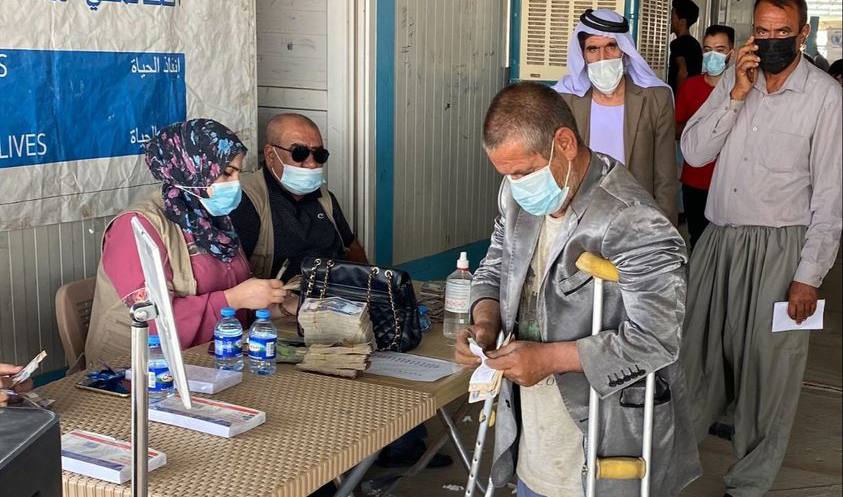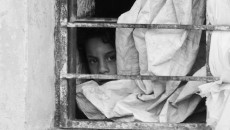The IDPs residing the semi-autonomous Kurdistan Region of Iraq KRI will not be able to obtain the financial assistance that was distributed to them by United Nations UN organizations as emergency grants.
After the attacks by the Islamic State of Iraq and Syria ISIS in 2014 and the wave of displacement of hundreds of thousands, the World Food Program (WFP) began distributing financial assistance to every displaced person in order to face hunger and secure food.
"Two weeks ago, we received the financial assistance allocated for the month of May, amounting to 12,000 (Iraqi) dinars (IQD) ($8) for each person," said Ali Majhan Jardo, a resident of Kabartw camp in DUhok province.
The financial assistance for each person ranges between 10,000-20,000 IQD per month.
Jardo, who was displaced several years ago from Al-Qahtaniyah (Tal Uzair) district of Shingal (Sinjar) district, home to the Ezidi community slaughtered at the hands of the extremist militants of ISIS for being non-Muslims, says that the financial assistance they were receiving, although “it was small amount, yet was meeting some of the family’s needs along with the monthly salary.”
“If this aid is stopped, it would leave negative effect on the displaced and we may have to borrow money to buy our needs."
According to the statistics of the Kurdistan Regional Government KRG, the daily expenditure on the displaced and refugees is $2 million, which is spent by the regional government and organizations.
The Iraqi Ministry of Migration and Displacement and a section of humanitarian organizations distribute food baskets and household needs to the displaced from time to time.
If this aid is stopped, it would leave negative effect on the displaced
The financial assistance allocated to the displaced will stop at the beginning of July.
The Director of the Department of Migration and Displacement and Crisis Response of the KRG in Dohuk province, Dayan Jafar, told (KirkukNow), “the WFP decided to stop the financial assistance it was providing in July, and they assured us of this, and argued that the available budget is not sufficient for all the displaced."
"Starting in July, this financial assistance will be given to the very poor and needy families according to several procedures, and a number of families included in each camp will be determined in order to disburse the financial assistance to them."
Jaafar said they have demanded the WFP to continue paying all IDPs but their request was rejected.
Jardo, father of five children, believes stopping this financial assistance, which was close to 100,000 IQD per month, will affect the livelihood of thousands of displaced people and their ability to secure food.
“We appeal to relevant authorities to find a solution by finding an alternative organization or method.”
There are more than 664,000 IDPs in the KRI, some of whom are distributed in 26 camps for the displaced in the Northern Provinces of Dohuk, Erbil and Sulaymaniyah. The rest lives in towns and villages to make their livings.
Jafar indicated that the KRG’s Department of Migration and Displacement and the Barzani Charitable Foundation, a local aid non-governmental organization NGO, are communicating with organizations in order to urge them to provide aid to the displaced, but the outbreak of the Russian-Ukrainian war several months and led to the displacement of millions, had an impact, as aid organizations are now allocating their aid and projects to Ukraine.
"UNICEF withdrew from several camps since the beginning of this month and stopped its work there, so we must fill the void they left. On the other hand, UNHCR will also withdraw in July from the Bardarash and Akre camps, which will burden the regional government," Jafar confirmed.
With the exception of Ninewa, the Iraqi government shut the IDP camps in all other provinces and they were returned to their original areas, except for the KRI camps, which were maintained under an understanding with the KRG, where the IDPs are reluctant to return to their homes for the lack of security and basic public services.






